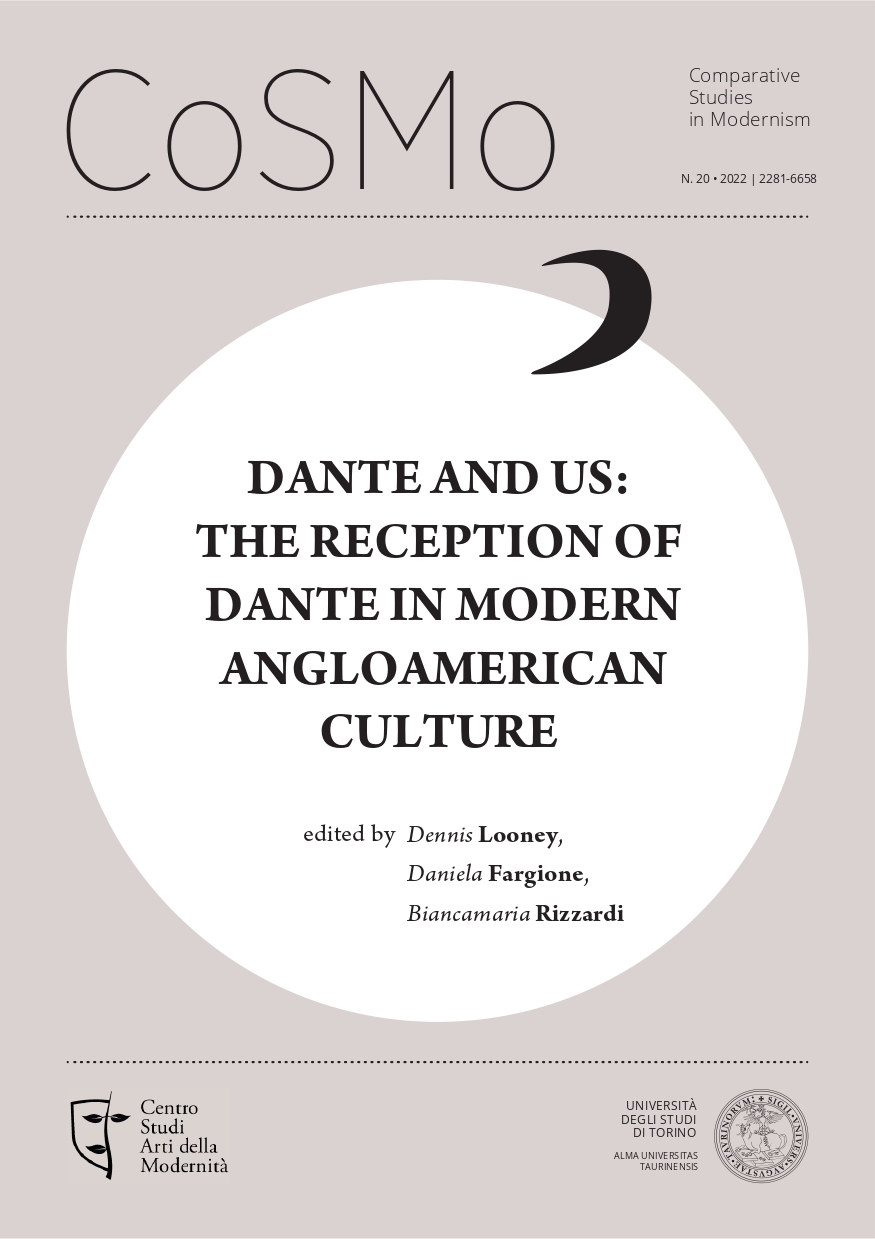“I Am the Means and Not the End”
Dante and E.M. Forster
DOI:
https://doi.org/10.13135/2281-6658/6643Parole chiave:
Dante, E.M. Forster, Victorian and Edwardian DantismAbstract
The celebrated epigraph to Howards End (1910), “only connect”, provides a fitting motto for the life and work of Edward Morgan Forster. With the epigrammatic intensity of a manifesto, the famous locution also encapsulates the compositional principle of Forster’s art, informed by intertextual references and quotations, ranging from Pope to Whitman, from Plato to Shakespeare, from Shelley to Dante. Less explicit than that of other models, the presence of the Sommo Poeta permeates Forster’s fictional as well as critical universe like a basso continuo, to use one of the musical metaphors so dear to the English writer: while Dante’s spirit can be caught in the literary interstices in which the narration aspires to become vision – in his early novels and most notably in Forster’s fictional representation of Dante in the supernatural tale “A Celestial Omnibus” (1911) –, the Italian poet features as a privileged interlocutor in Forster’s criticism and journals. This essay intends to retrace the forms and development of this artistic dialogue starting from the lecture on Dante that Forster delivered in 1907 for the Working Men’s College, the result of a study of the Florentine poet and of The Divine Comedy over which, as the author wrote in 1958, he had “put in quite a lot of work”.
Downloads
##submission.downloads##
Pubblicato
Fascicolo
Sezione
Licenza
Gli autori mantengono i diritti sulla loro opera e cedono alla rivista il diritto di prima pubblicazione dell'opera, contemporaneamente licenziata sotto una Licenza Creative Commons - Attribuzione che permette ad altri di condividere l'opera indicando la paternità intellettuale e la prima pubblicazione su questa rivista.






